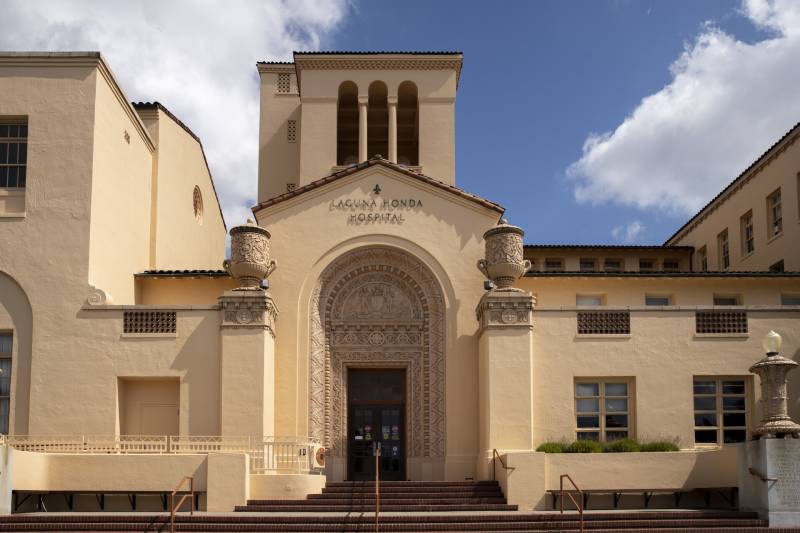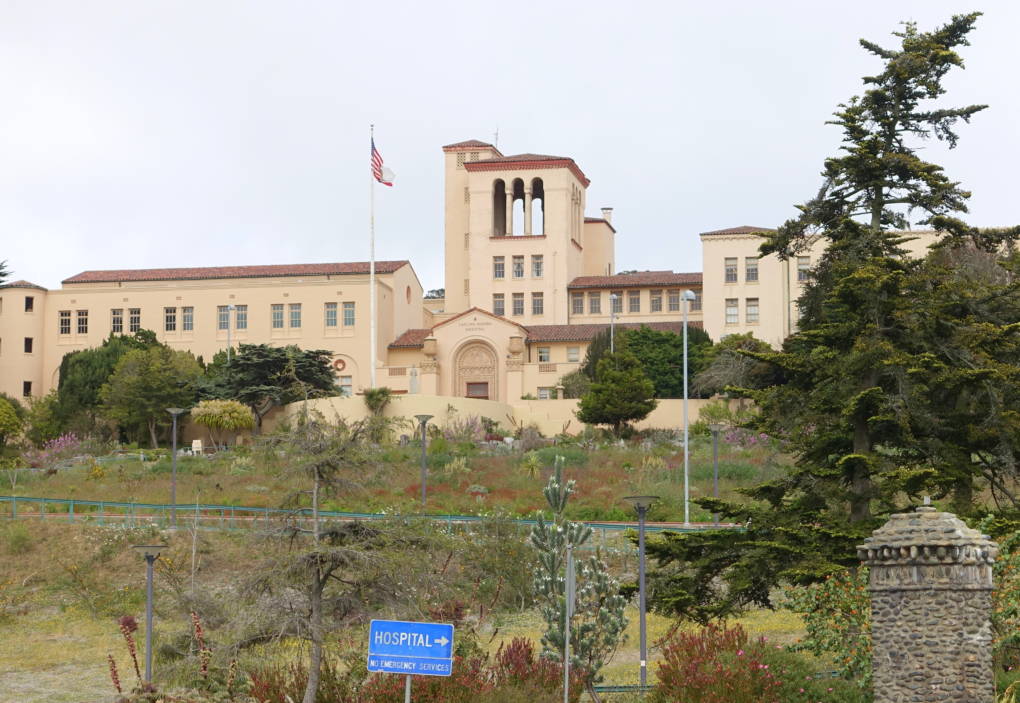Update, 11:30 a.m. Friday, July 29: State and federal regulators have agreed to an "urgent" request from the San Francisco Department of Public Health to "pause" the federally mandated discharge or transfer of all remaining residents at Laguna Honda Hospital, city health officials announced on Thursday. The temporary measure, which took effect Thursday, applies to the roughly 600 residents still at the hospital.
"Today's agreement to halt all patients discharges and transfers will allow the dedicated Laguna Honda staff to focus on caring for patients and not moving them," Dr. Grant Colfax, director of the San Francisco Department of Public Health, said in a statement.
The statement noted it has been "an extremely challenging time for our community of residents and their families, our staff and all those who care about Laguna Honda Hospital," and said the facility would continue to work toward recertification.
To date, 57 residents have been transferred or discharged, and admissions to the hospital remain paused, a hospital official said in an email Friday.
"We will do our best to prioritize former residents who have been transferred out of Laguna Honda," the official said. "At this time, we are not certain how long the pause of transfers and discharges will be but will continue to keep our community updated with the latest information. We know the uncertainty is challenging but we hope this pause provides our community with relief."
Original story, 5:30 p.m. Friday, July 22:
San Francisco officials expressed outrage this week over the deaths of four patients shortly after they were transferred from Laguna Honda Hospital and Rehabilitation Center to other facilities.
News of the deaths came after federal authorities gave Laguna Honda just four months to close down due to a series of violations. The hospital is the nation’s largest skilled nursing facility, treating nearly 700 patients, many of them medically fragile and low-income.
Two of the patients, women with dementia aged 95 and 102, died within days of being transferred, according to reporting by The San Francisco Chronicle. The story cited a doctor at Laguna Honda who spoke on condition of anonymity. Fewer details are known about an 80-year-old patient who died within days of being transferred, or about the fourth patient, a person in his or her 60s who died three weeks after being transferred, according to the Chronicle.
The U.S. Centers for Medicare and Medicaid Services (CMS) is requiring Laguna Honda to transfer or discharge all patients by Sept. 13, after the federal agency decertified the nursing facility in April. San Francisco’s Department of Public Health, which runs the facility, is working to be re-certify Laguna Honda before the deadline, but must in the meantime abide by the closure order.
As of July 18, 56 patients had been moved – 40 were transferred to other skilled nursing facilities and 16 were discharged, three of them placed in homeless shelters, according to the city's dashboard.
At a hearing Thursday, San Francisco supervisors and health officials blamed CMS for the rushed closure of the 156-year-old hospital.
"I think that what is happening to folks who are being turned out of Laguna Honda – in some cases to die, in other cases to be sent to homeless shelters – is an embarrassment to the Biden administration," said Supervisor Rafael Mandelman.
"Laguna Honda is the country's largest skilled nursing facility. San Francisco is the only county that has tried to bear the responsibility of operating a facility like this," he said. "And to be turning folks out of that institution into either far poorer and far less careful institutions, or in some cases to homeless shelters, is abominable and awful."
Roland Pickens, Laguna Honda's interim CEO, told supervisors at the hearing that his pleas for a longer period of time to find adequate facilities for patients went unheeded.
"We recognized how traumatic a closure or transfer would be for patients at Laguna, and informed CMS, as the local experts who take care of our patients and know our population, how long it would take," Pickens said. "They rejected that 18-month offer and said, 'No, you must do it in four months.'"
Laguna Honda suffered a scandal in 2019 after cases of patient abuse were uncovered, which led to the firing of hospital CEO Mivic Hirose. The incidents of alleged verbal and physical abuse happened between 2016 and January 2019. The facility came under further scrutiny after staff reported two patients' non-fatal overdoses on street drugs in July 2021.
State officials concluded last October that the facility was "in a state of substandard care," after an investigation found deficiencies related to hygiene, safety protocols, drug paraphernalia and other banned substances. The state implemented a six-month deadline for a correction plan. After failing to meet that deadline, Laguna Honda was decertified by CMS.



